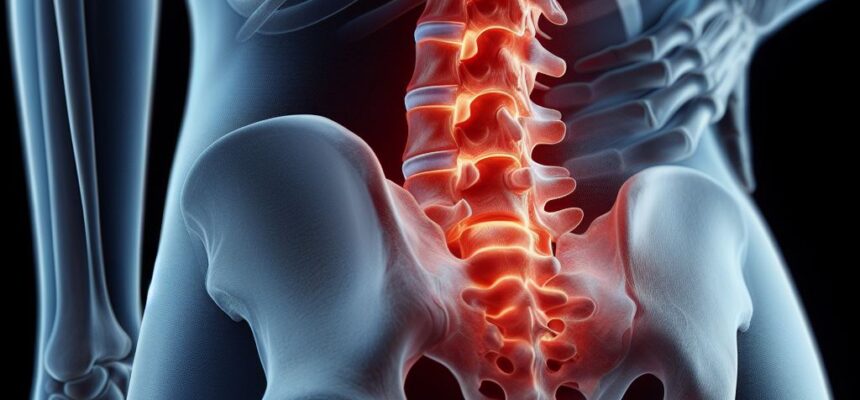Radiographic Evaluation of the Lumbar Region
Medical students should be familiar with the fundamental aspects of lumbar X-ray interpretation. Here’s a succinct guide:
Indications:
- Low Back Pain: Investigate the cause of persistent or severe low back pain.
- Spinal Deformities: Assess for scoliosis or other spinal abnormalities.
- Disc Pathologies (if advanced imaging is not available): Identify herniated discs or degenerative changes.
- Postoperative Assessment: Check for stability post-lumbar surgeries.
Contraindications:
- Pregnancy: Minimize exposure, especially during the first trimester.
- Unnecessary Exposure: When clinical evaluation alone is adequate for diagnosis.
- Advanced Imaging Preferred: Cases requiring detailed assessment, where CT or MRI is more suitable.
Interpretation:
- Alignment: Evaluate for normal lumbar lordosis and any misalignments.
- Disc Spaces: Assess for disc height, potential herniations, or degeneration.
- Vertebral Bodies: Check for fractures or signs of pathology in the vertebral bodies.
- Soft Tissue: Look for abnormalities in the soft tissues surrounding the lumbar spine.
Potential Findings:
- Disc Herniation: Presence of herniated discs causing nerve compression.
- Spondylolisthesis: Forward slippage of one vertebra over another.
- Degenerative Changes: Osteophyte formation, disc space narrowing.
- Fractures: Compression fractures or fractures of the lumbar vertebrae.
Actions to Be Taken:
- Consult Radiologist: Seek expert opinion for complex cases.
- Clinical Correlation: Correlate findings with the patient’s clinical history and physical examination.
- Further Imaging: If X-ray is inconclusive or more detail is needed, consider CT or MRI.
- Timely Reporting: Communicate findings promptly for appropriate patient management.
- Consider Patient Factors: Age, comorbidities, and clinical presentation influence the approach.
Medical students should understand the basics of lumbar X-ray interpretation, recognizing its role in diagnosing various conditions affecting the lower spine.
Одобрено отDr. Petya Stefanova
